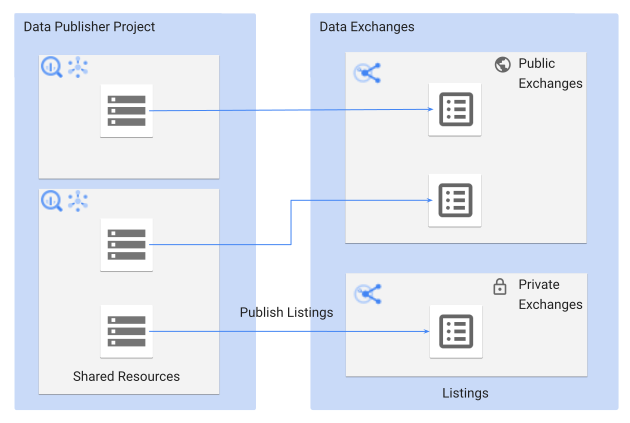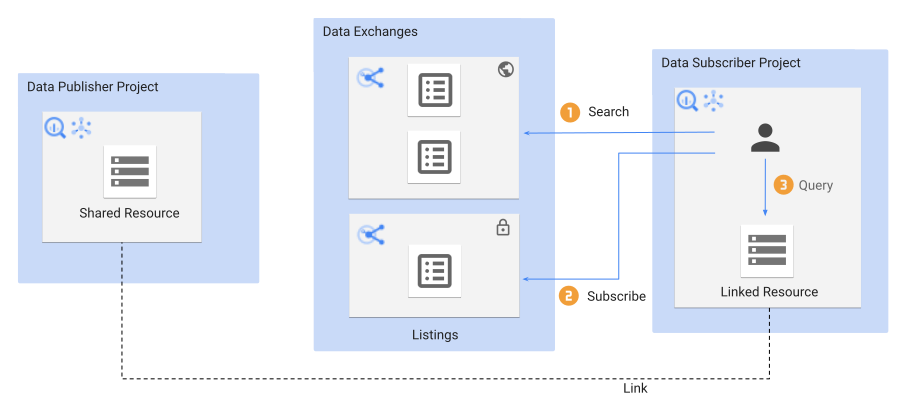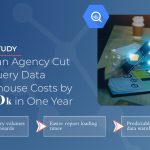
As agencies manage increasingly complex digital marketing portfolios, there's been a shift in client expectations around data access. Instead of relying solely on agency-prepared dashboards, more clients are now requesting access to the raw data itself for integration into their own reporting systems or dashboards.
Google Analytics Hub in BigQuery is an ideal solution to address these client needs, providing a flexible, scalable, and transparent way to share client data while maintaining control and security.
What is Google Analytics Hub in BigQuery?
Google Analytics Hub, integrated with Google BigQuery, allows agencies to store, manage, and analyze massive datasets in an efficient and scalable way. This platform transforms raw data into structured, queryable datasets, allowing users to run SQL-like queries for deeper insights. It serves as a centralized data hub where agencies can consolidate client data and provide access tailored to each client's specific needs.
BigQuery's capacity to handle large amounts of data without compromising speed makes it a powerful tool for agencies managing multiple client accounts with complex, high-volume data streams.

Why Do Clients Want Direct Data Access?
- Custom Dashboards: Many clients now have internal analytics teams or third-party tools that require direct access to raw data. These teams seek more flexibility in creating custom dashboards using platforms like Google Looker Studio Pro, Tableau, or Power BI, which provide deeper insights tailored to specific business needs.
- Transparency: Clients want to see the raw numbers, not just summarized reports. Direct access ensures they can view all the data collected from their digital marketing efforts.
- Efficiency: Custom dashboards allow clients to track key metrics in real time, eliminating the need to wait for agency reports or troubleshoot static dashboards that don't update instantly.
How BigQuery Supports Scalability and Flexibility
BigQuery's cloud infrastructure is ideal for agencies facing increased demand for client data access. Here's why:
- Scalable Data Storage: BigQuery can handle massive amounts of data without requiring expensive hardware or data centers. This is especially beneficial for agencies juggling data from multiple clients, as it provides the flexibility to scale as needed.
- Data Security: Agencies need to control who has access to client data, ensuring that sensitive information is protected. With Google Analytics Hub in BigQuery, agencies can manage access using IAM (Identity and Access Management) roles. This allows fine-grained permissions, ensuring each client can only access their specific datasets without compromising others' data.
- Efficient Querying and Sharing: BigQuery enables high-performance querying, even with extremely large datasets. Agencies can grant clients access to specific datasets, allowing them to run their own queries and generate insights without impacting the agency's main data operations. This allows clients to integrate their data directly into their own dashboards with tools like Looker Studio Pro or other BI platforms.
- No More Data Silos: Agencies traditionally provide data via custom reports or agency-managed dashboards, which can create data silos. By using BigQuery, agencies can provide clients with real-time access to unified data sources, reducing friction and improving client satisfaction.

Managing Client Requests with Google Analytics Hub
When faced with multiple client requests for data access, agencies need a structured approach to maintain efficiency while ensuring data security. Here are key steps agencies should take when setting up BigQuery and Analytics Hub:
- Establish Clear Data Ownership and Security Protocols: The first priority should be defining who owns what data. Since BigQuery provides granular permission settings, agencies can assign access based on a client's needs, ensuring other clients' data isn't exposed.
- Automated Data Exports: Agencies should configure daily, automated exports from each of the sources their customers use to measure performance and trends. This ensures that client data is up to date and accessible for analysis in near real-time.
- Client-Specific Data Views: Agencies can create custom views or tables that contain only the data relevant to a particular client. These views can be securely shared, allowing clients to query data without accessing the full dataset.
- Cost Management: Since BigQuery operates on a pay-per-query model, agencies need to monitor usage and query costs, especially when providing multiple clients with access. Agencies can set up budget alerts to prevent cost overruns.
- Enable Custom Dashboards with BI Tools: Many clients will want to integrate BigQuery data into their BI tools. Agencies should assist clients in connecting BigQuery datasets to platforms like Launchpad's Visualization Suite, Google Looker Studio, Tableau, or Power BI, enabling them to create their own custom reports.
Strengthening Agency-Client Relationships
By leveraging Google Analytics Hub in BigQuery, agencies can enhance their client relationships in several ways:
- Building Trust: Offering direct data access fosters transparency and gives clients a sense of data ownership.
- Empowering Clients: Clients can take control of their reporting, ensuring they get the exact metrics and visualizations they need.
- Reducing Workload: By enabling clients to access their data directly, agencies can focus on higher-level strategy and analysis rather than constant reporting.
Ultimately, Google Analytics Hub in BigQuery is a forward-thinking solution that enables agencies to meet modern client expectations.
As more clients request direct access to their data, BigQuery offers a powerful way to bridge the gap between agency-managed dashboards and client-controlled analytics, all while maintaining efficiency and security.
Getting Started with Google Analytics Hub
Implementing Google Analytics Hub in BigQuery can transform how you manage and share client data. Whether you're setting up your first analytics stack or optimizing your current setup, Calibrate Analytics can help.
Our experts will guide you in establishing data protocols, automating exports, and creating custom views tailored to your clients' needs. Contact us today to learn how we can help you use BigQuery to enhance client relationships and drive insights.






